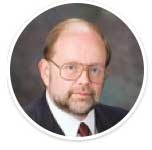 To the casual observer, it may seem like a contradiction. The Workers’ Compensation Appeals Board (WCAB) gave notice that it was going to amend its Rules of Practice and Procedure, “to formalize the processes for the remote hearings, electronic filing, and electronic service that developed during the novel coronavirus pandemic.” That notice was dated August 20 and advised all those interested of the public hearing on their proposal set, in accordance with the formalities of the Labor Code, on September 24.
To the casual observer, it may seem like a contradiction. The Workers’ Compensation Appeals Board (WCAB) gave notice that it was going to amend its Rules of Practice and Procedure, “to formalize the processes for the remote hearings, electronic filing, and electronic service that developed during the novel coronavirus pandemic.” That notice was dated August 20 and advised all those interested of the public hearing on their proposal set, in accordance with the formalities of the Labor Code, on September 24.
On September 1, the Division of Workers’ Compensation (DWC) announced a resumption of in-person hearings, consisting of trials, lien trials, expedited hearings and special adjudication unit (SAU) trials, on October 1 in most DWC district offices. Some offices in less populous areas will remain virtual. At first glance, this suggests a bit of a disconnect between the Board and the Division. While it may be overanalyzing the situation, this could be nothing more than a question of timing.
The reason for this flurry of activity might have to do with two Executive Orders issued by Governor Newsom. The first, from May of 2020, suspended various laws and regulations governing the right to have in-person hearings and to object to hearings being held by telephonic or other electronic means. The Order, N-63-20, did many more things, but for purposes of this question the key is that the Order gave the WCAB the authority to mandate virtual hearings.
But all good things must come to an end. In June of this year, the Governor issued another Executive Order, N-08-21, basically stating that the laws and rules applicable to WCAB hearings that were suspended were going to be back in force on October 1st. The DWC, who manages the Board’s offices, notified the community of the impending board office openings and a certain level of pandemonium ensued.
It would seem that parties like the virtual arrangement put in place since the first Executive Order was signed. While there are some concerns about the proposed WCAB rules, the basic premise of making these rules permanent (post-pandemic) has strong support. At least such is the case with the people who make regular appearances at the Boards. How this might affect others, such as unrepresented workers or workers who do not have the bandwidth – literally – to participate in these remote hearings is not entirely clear.
It is also a testament to the real estate decisions made by California’s Department of General Services and foisted upon the DWC. The Board venues, in other words, are not exactly garden spots. But that is not the question – at least at the moment.
Treating injured workers with respect and dignity, including where they are required to go in order to press their claims for benefits under the Grand Bargain, has never been something put on the table in those clandestine venues where “reform” is brokered.
The question at the moment, however, is how those who are most interested in being convenienced by remote forums can continue to do so on and after October 1st. The answer to that is simple. The Board will have a hearing on September 24th. The Board’s changes to its rules, even accommodating the interests of lawyers, can be on the books and ready to go on October 1st. That is because the Board is not constrained by the requirements of the Administrative Procedures Act (APA) when developing their Rules of Practice and Procedure, save for a notice requirement already met.
So please, in an environment where there are so many issues to deal with, particularly with the risk still present with COVID-19, can we just use the next few weeks to preserve a status quo that appears to serve the system well? The details can be dealt with later.
Note: The opinions expressed herein may or may not be those of Workers’ Comp Executive. Mark Webb is a former Arizona insurance regulator, insurance company chief compliance officer, and is an expert in corporate governance, risk and compliance. He is the owner of Prop 23 Advisors.

